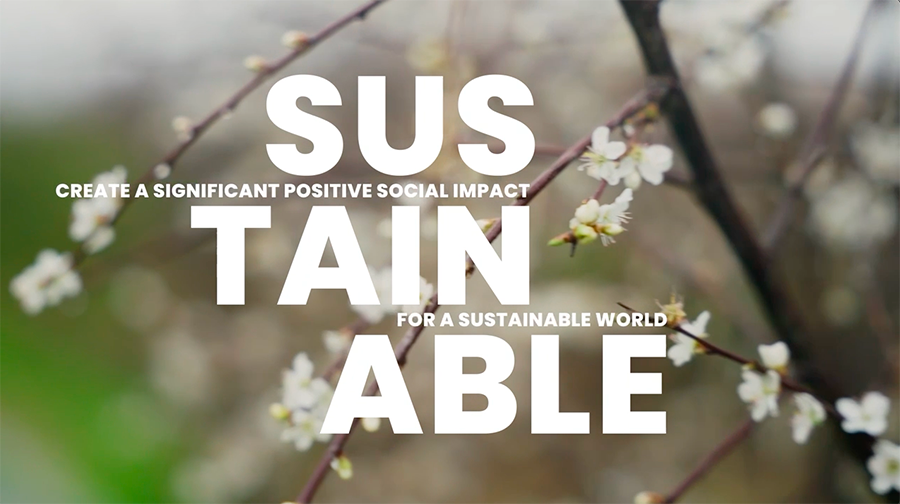Climate change poses threats to both human health and the resilience of our healthcare systems. In line with our dedication to safeguarding the planet, we have reassessed our GHGreduction goals. An ambitious strategy that is being developed and implemented across our entire organization.
As part of our reinforced targets, we intend to reduce our Scope 1 & 2 emissions by 42% and Scope 3 emissions by 25% by 2030, compared to 2021-2022 levels1. These targets are aligned with the Paris Agreement which aims to limit global temperature increase and thus reduce the risks and impacts of climate change.
“As highlighted during COP28, climate change has multiple consequences, particularly on human health. That is why, we decided to reinforce our commitment by setting more ambitious targets and we are determined to achieve them.”
Vincent Minvielle, Servier Group CSR Director
A comprehensive approach to reduce our carbon footprint
In 2022-2023, we reduced our scope 1&2 greenhouse gas emissions by 11% as compared to the previous year. Our efforts are holistic and cover the entire value chain of our medicines. Our main focus is on:
In 2022-2023, the Group’s energy consumption levels were reduced by 15% compared with the previous year. We also increased the percentage of renewable energies within our energy mix. For instance, 6 out of our 16 industrial and R&D sites now use only renewable electricity – either produced through solar panels onsite or through procurement of renewable energy.
Part of the Group’s direct emissions come from its car fleet, indispensable to our medical sales representatives. We are currently working on gradually increasing the percentage of hybrid and electric vehicles.
“In Belgium and Luxembourg, our new car fleet catalogue consists exclusively of electric vehicles. We have set up charging stations at the office and are setting up individual charging stations at the homes of employees who have a company car to facilitate this transition.”
Ewelina Franczuk, Global Travel & Car Fleet Category Manager, Servier
Purchased goods and services account for more than 80% of our emissions. Our tenders systematically include climate-related criteria to assess suppliers. In alignment with our EcoDesign by Servier program, we have also implemented actions such as substituting solvents with lower-emissions alternatives and reviewing our packaging guidelines.
Air freight is faster but more carbon intensive. In a bid to prioritize a more environmentally responsible means of transport for our medicines, we are gradually increasing the volume of sea freight. In 2022-2023, 57% of our intercontinental flows were transported by the sea, representing a 12% increase in marine transport and a 4% reduction in air transport, as compared to the previous year.
Servier Climate School to create environmental awareness
Ecological transition is one of the major challenges of our industry. The impact of climate change on the entire corporate value chain (business models, risks, strategic choices, job profiles, work methods, etc.) is a reality that we must consider.
Last September, we launched Servier Climate School for Servier employees, in order to create awareness on this topic. The Climate School provides a series of online courses to help understand environmental challenges in business context, as well as to provide guidelines on actions to contribute. With a mix of videos and quizzes, the School is available in multiple languages to ensure accessibility to a maximum number of employees.
A unique challenge
“Bringing about sustainable change in the pharmaceutical industry is a unique challenge with its unique set of answers. The extended time frame of Research and Development, spanning 15-20 years, requires a blend of anticipation, long-term vision, and patience. Stringent regulations and safety priorities mean that we have limited flexibility and any changes to our practices is typically time-consuming. Moreover, the industry’s intricate relationships with external stakeholders, including suppliers, partners, and patients, require strategic alignment and collaboration across diverse interests and perspectives. We are constantly balancing ecological objectives, stakeholder interests and healthcare imperatives.”
Shuo Wang, CSR Manager, Servier
A healthy planet for healthy people
Our approach to the Planet goes beyond to minimizing our impact on biodiversity and nature. We believe that the health and resilience of people and our company depend on the health and resilience of natural ecosystems and their biodiversity.
Commitment to Nature
In 2021, we joined the Act4Nature International alliance which brings together private sector companies, public authorities, scientists, and environment NGOs to create a genuine collective dynamic to protect, enhance and restore biodiversity. A few examples of our actions:
Ecodesigning our medicines
To minimize environmental impact, such as reducing carbon emissions, waste, and resource consumption, we integrate ecodesign principles into the lifecycle of medicines, from R&D to the product’s end of life, as well as the purchasing of raw materials, manufacturing, logistics and distribution. A few recent achievements of our program Ecodesign by Servier are as follows:
At Servier, we are driven by a profound commitment to creating a significant social impact for patients and for a sustainable world. This commitment lies at the heart of our ambition for 2030.
When inspiration meets action: dive into our CSR manifesto video and explore our CSR Report 2022-2023 showcasing our key performance indicators and initiatives as a responsible company.
Watch our manifesto video

[1] Scope 1 emissions occur directly from sources that are controlled or owned by the Group. Scope 2 emissions are associated with the purchase of electricity, steam, heat, or cooling. Scope 3 emissions include indirect greenhouse gas emissions from sources outside of our direct control, such as emissions from purchased goods and services, business travel and transportation of products.

